Book Reading Group
|
The Castlemaine U3A Reading Club has Members who have joined the group for various reasons including to increase their reading list and enjoy a discussion about a book.
These are what we have read. |
||
July
Dark Emu argues for a reconsideration of the "hunter-gatherer" tag for pre-colonial Aboriginal Australians and its author builds a case to rebut the colonial myths that have worked to justify dispossession.
Accomplished author Bruce Pascoe provides compelling evidence from the diaries of early explorers that show how systems of food production and land management have been blatantly understated in modern retellings of early Aboriginal history, and that a new look at Australia’s past is required. |
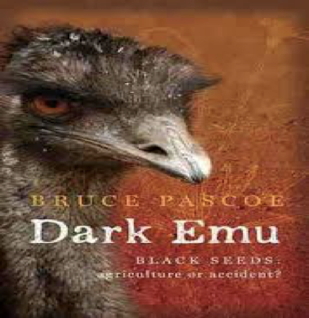 |
10
Comments by book group members: A political book showing Aboriginal peoples reverence for the land and poses the question as to why settlers sort to destroy the land. The great colonial template laid down across the colonised world left a path of cultural destruction. Group members acknowledged our distress of living so long in Australia without any knowledge of what Pascoe brings to our attention in Dark Emu. |
June
Independent People, a historical novel in the social - realist tradition, set in mid-20th century Iceland and written by Halldor Laxness, winner of the 1955 Nobel Prize for Literature. The plot focuses on a sheep farmer, Bjartus who is determined to eke out a living from a blighted patch of land. Nothing, not merciless weather, nor the First World War, nor his family will come between him and his goal of financial independence.
|
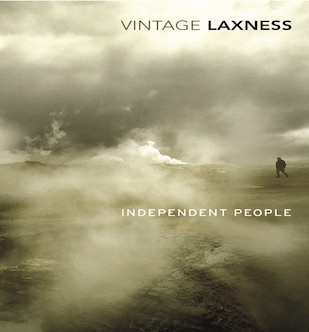 |
RR
Ratings: Recommended Reading
Comments: wonderful language, poetic in parts with subtle and frequent use of metaphor; the novel felt similar in tone and class politics to a Thomas Hardy 19th century novel. Although the pace of the writing was at times too detailed, it did reflect the pace of rural life in remote and socially isolated Iceland. Bjartus, the major character, has few redeeming features, except for his poetry. A realistic portrait of sheep farming and harsh croft life in rural Iceland. |
|
May
Gigi is a 1944 novella by French writer Colette. The plot focuses on a young Parisian girl being groomed for a career as a courtesan and her relationship with the wealthy cultured man names Gaston who falls in love with her and eventually marries her. |
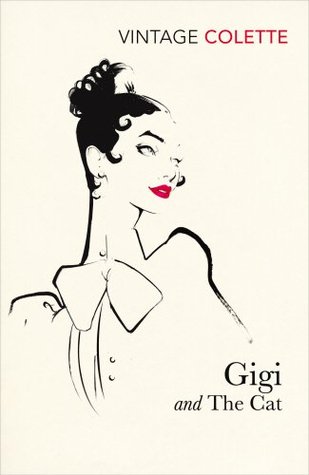 |
6
Ratings: 8, 5, 6, 6, DNR, DNR, DNR Comments: men appeared to be weak, perhaps a feminist writer created this; OK but wouldn’t read it again; a book about many different kinds of love; very dialogue driven ‘he says…she says’; probably tells a story of a class driven society; shallow and selfish characters; Colette was very observant of the world she lived in; an examination of old and new worlds colliding. |
|
April
The Tall Man: Death and Life on Palm Island is a 2008 book by Chloe Hooper. It is about the events surrounding the death in custody of Australian Aboriginal, Cameron Doomadgee. |
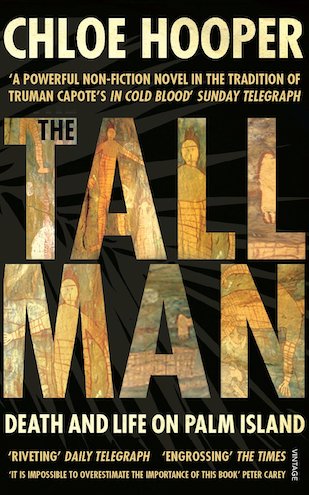 |
10
Ratings: 10, 9, 10, 10, 10, 10 Comments: Densely and beautifully written; Clear description; read like a novel despite it being non-fiction; Description of events was impartial; an important book and an important voice; |
|
March
'In Acland Street, St Kilda, there stands a cafe called Scheherazade.' Thus begins this haunting meditation on displacement and the way the effects of war linger in the minds of its survivors. At once fable and history, it takes the reader on a journey which ranges from Kobe to Paris, from Vilna and back to Melbourne. |
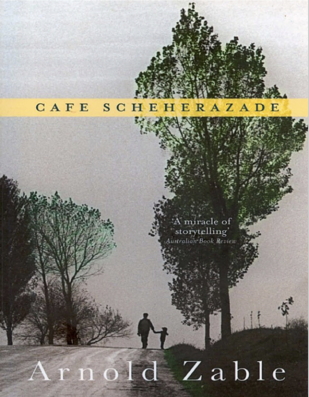 |
7.5
Ratings: 8, 8.5, 7.5, 8, 7.5, 7.5 DNR Comments: Enjoyed it; felt saddened at times; I had been to the Café in St Kilda; an interesting personal story of war and displacement; difficulties of immigrants and retelling the stories; has worn well over time.. |
|
February
The Arrival is a migrant story told as a series of wordless images that might seem to come from a long forgotten time. A man leaves his wife and child in an impoverished town, seeking better prospects in an unknown country on the other side of a vast ocean. He eventually finds himself in a bewildering city of foreign customs, peculiar animals, curious floating objects and indecipherable languages. With nothing more than a suitcase and a handful of currency, the immigrant must find a place to live, food to eat and some kind of gainful employment. He is helped along the way by sympathetic strangers, each carrying their own unspoken history: stories of struggle and survival in a world of incomprehensible violence, upheaval and hope. |
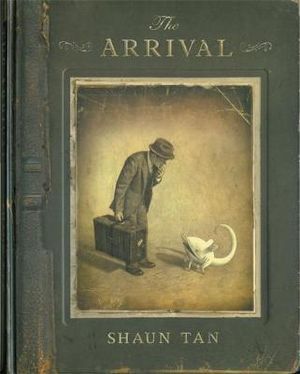 |
9
Ratings: 9, 8, 6.5, 9, 8, 9.5, 10 Comments: As this was a book without words, there was much discussion about this concept. Many of the group found it difficult at first as they had not experienced this style of book before, and many struggled with understanding it. During the discussion there were many comments about: what did that bit mean? What was that an image of? I misunderstood that bit….oh, now I understand it much better. |

